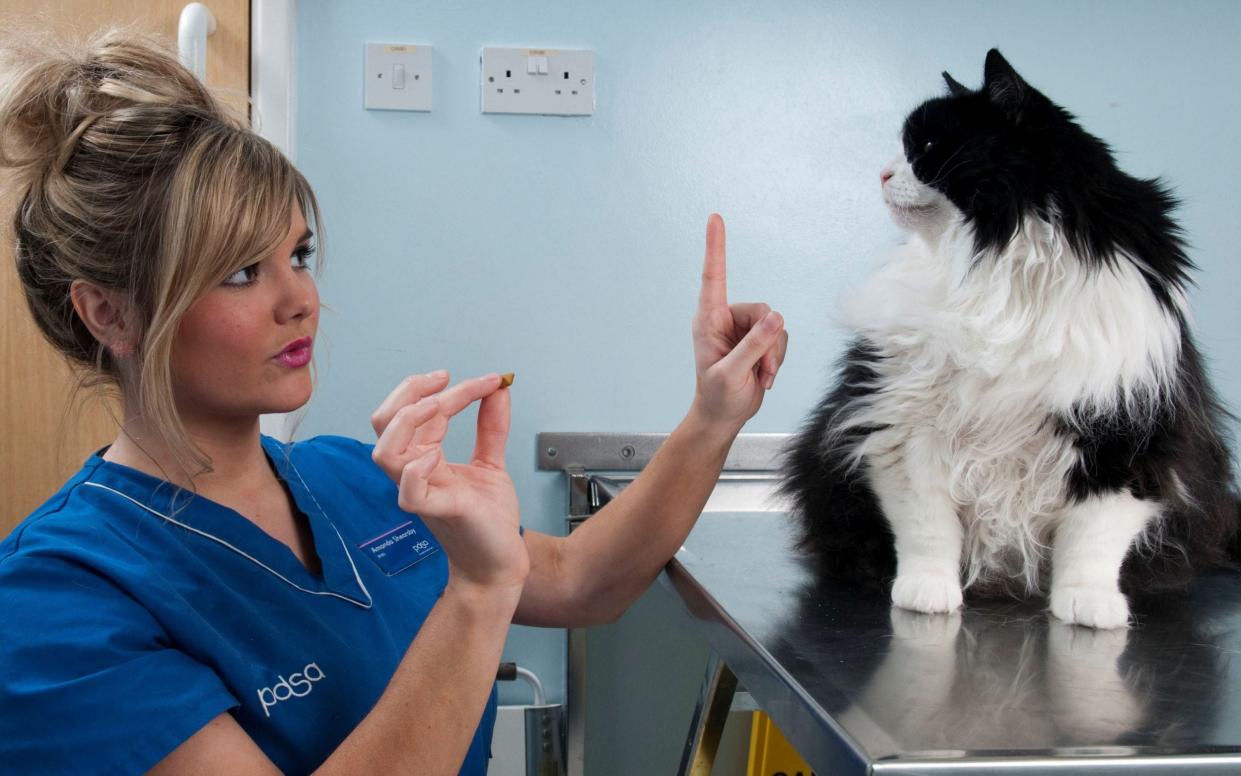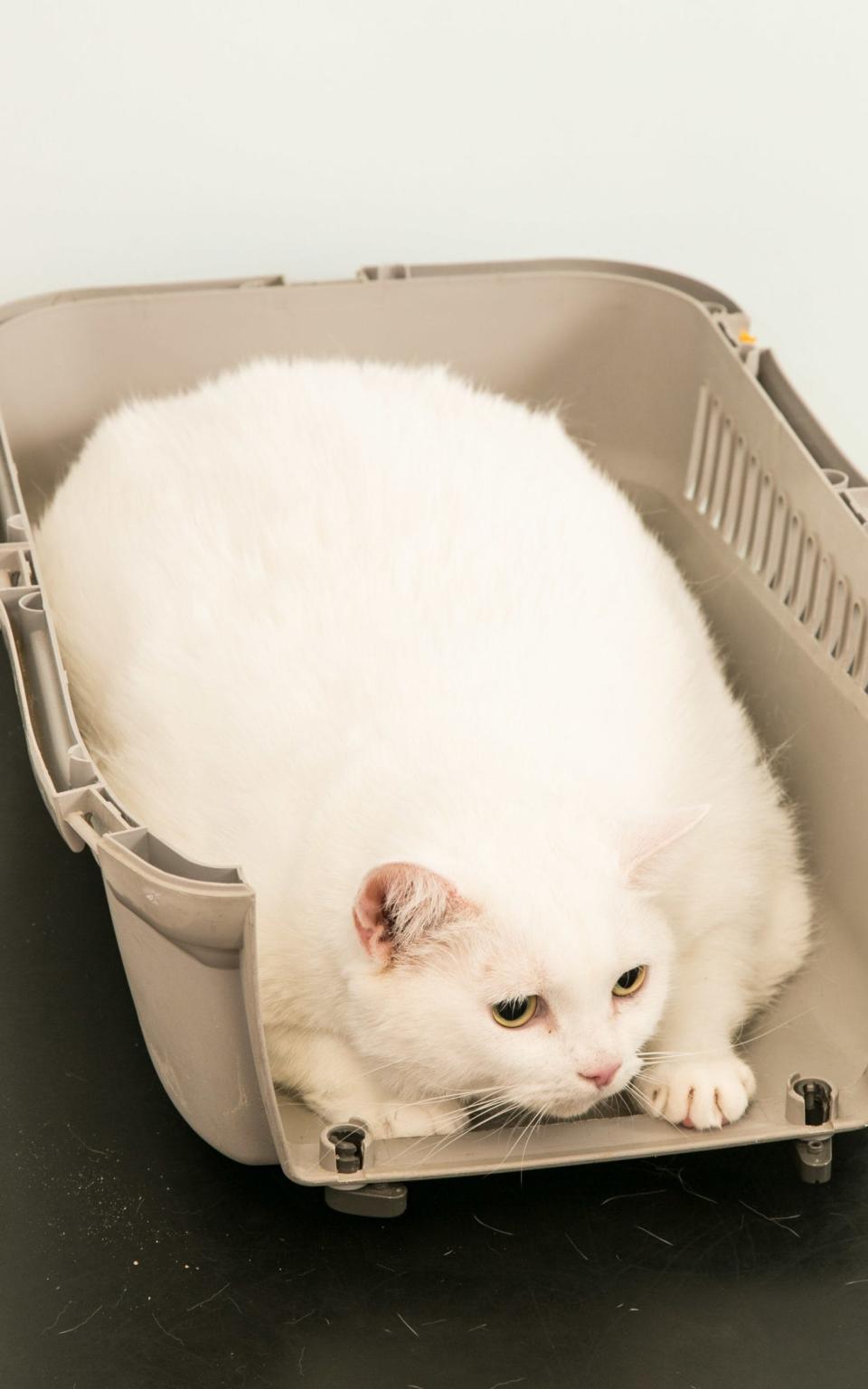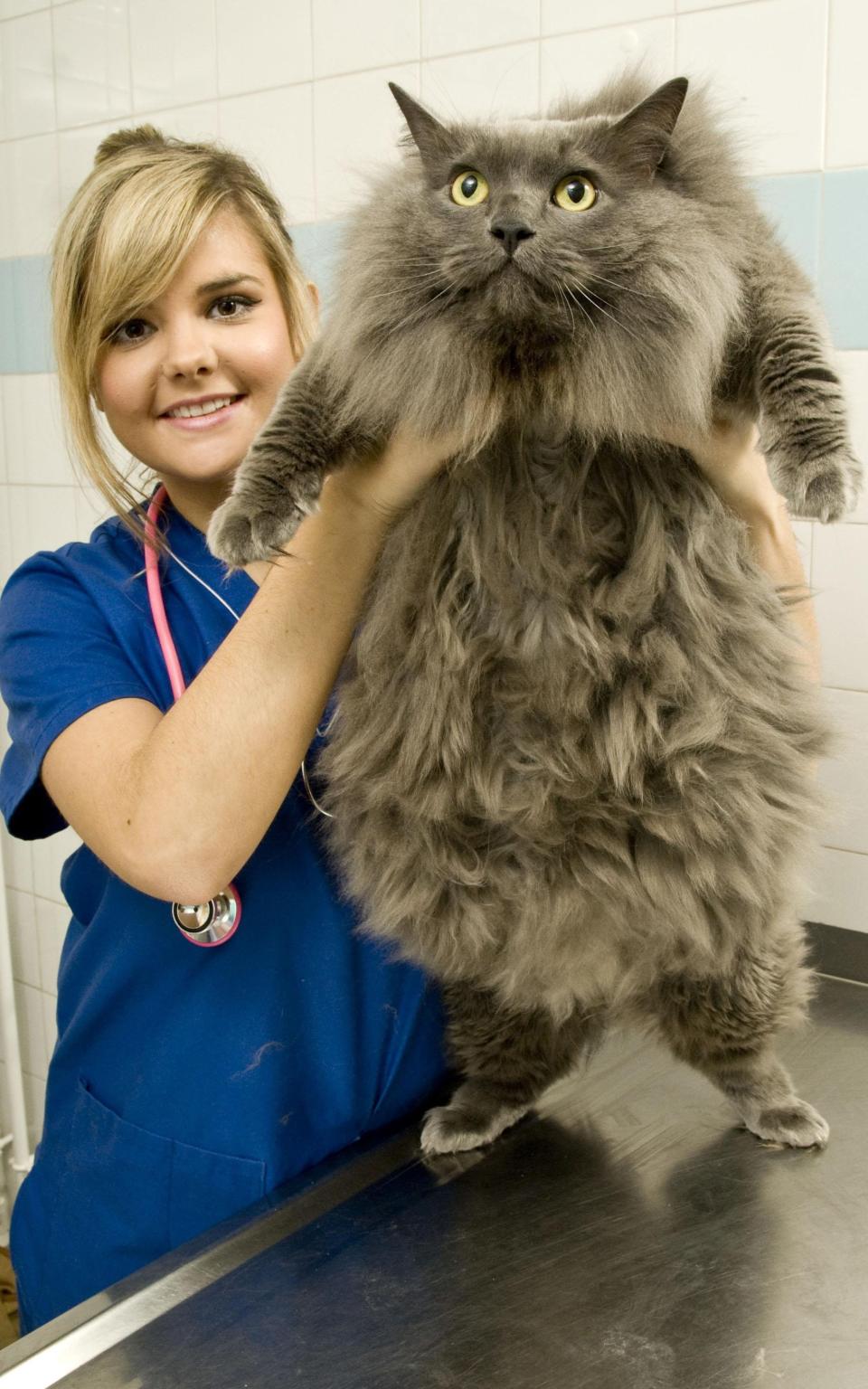Nearly half of Britain’s cats are obese and need to go on a diet, vets warn

Nearly half of Britain’s pet cats are obese with more than 50,000 suffering from diabetes, vets have warned, as they called for owners to enrol their fat felines in trials to reverse the condition.
Over the past year, The Royal Veterinary College (RVC) has been running a pilot programme to put diabetic cats on a calorie restricted diet and monitoring programme, which has brought three quarters of the animals back to health.
Now they are calling on more owners to enrol their animals on the programme, which can extend their lives and prevent the need for regular insulin injections.
Dr Ruth Gostelow, a lecturer in small animal internal medicine at the RVC, said: “Although some cats will remain diabetic for the duration of their life, a proportion can achieve diabetic remission and stop insulin treatment. Achieving diabetic remission significantly increases their life expectancy, and owner and pet wellbeing.
“The study has already proved incredibly successful; since it began, recruited cats have recorded a diabetic remission rate of approximately 75 per cent; an outstanding result compared to what is typically reported for diabetic cats.
“The early success of the trial means we want to expand it, and now we need more vets and their cat owners to sign up.”

Feline obesity in Britain has risen alongside trends to keep domestic cats indoors, with almost half of owners saying they do not let their pets outside, particularly those living in cities.
A study by Nottingham Trent University found that owners were particularly concerned about protecting their pets from traffic, people and other wildlife, even though an indoor lifestyle can be bad for their physical and mental health.
Indoor lifestyles and lockdowns contribute to obesity
During the pandemic, people who were self-isolating with coronavirus were also advised to keep their pets inside to avoid potentially spreading the virus, which may have increased levels of obesity, experts fear.
Experts say that the pandemic has also made the problem worse because owners were at home more and were able to give their pets extra treats throughout the day.
There are thought to be around five million obese cats in Britain, and an estimated 54,500 cats suffering from diabetes, with vets expecting the numbers to increase. Diabetes in cats is so deadly that many animals are put down upon diagnosis.
Owners are being asked to sign up for a 12-month programme that would involve a special diet, and regular glucose monitoring. They will even be provided with glucose monitoring cat litter.
Cats joining the trial will attend between five and seven outpatient appointments at the RVC Queen Mother Hospital for Animals, near Potters Bar in Hertfordshire.

Rachel Fortescue, of Frating, Essex, enrolled Lester, her prize-winning Burmese cat, in the pilot scheme last October after it was diagnosed with diabetes and required insulin injections twice a day.
Within a week, Lester had stopped needing injections at all and has been in diabetic remission ever since.
“I have watched Lester turn back into a happy, affectionate, playful cat again as the symptoms of his diabetes have disappeared and for that I am eternally grateful,” she said.
“I have no doubt that Lester's early remission would not have happened if he had not been on the trial.
“As soon as Lester was diagnosed with diabetes, I knew I had to do everything for him.”
Dr Amrita Mohanty, at the RVC, said: “As a veterinarian, I am very grateful to be part of a trial that has such an effective dietary therapy and have truly enjoyed working with our trial patients, sharing in the success of the owners who achieve stability or remission.
“I am hopeful that I can help many more cats with this diet and look forward to the beneficial impact this newly developed dietary treatment will have on diabetic cat populations in the future.”
Vets and pet owners can apply for the trial by emailing fdrc@rvc.ac.uk.

